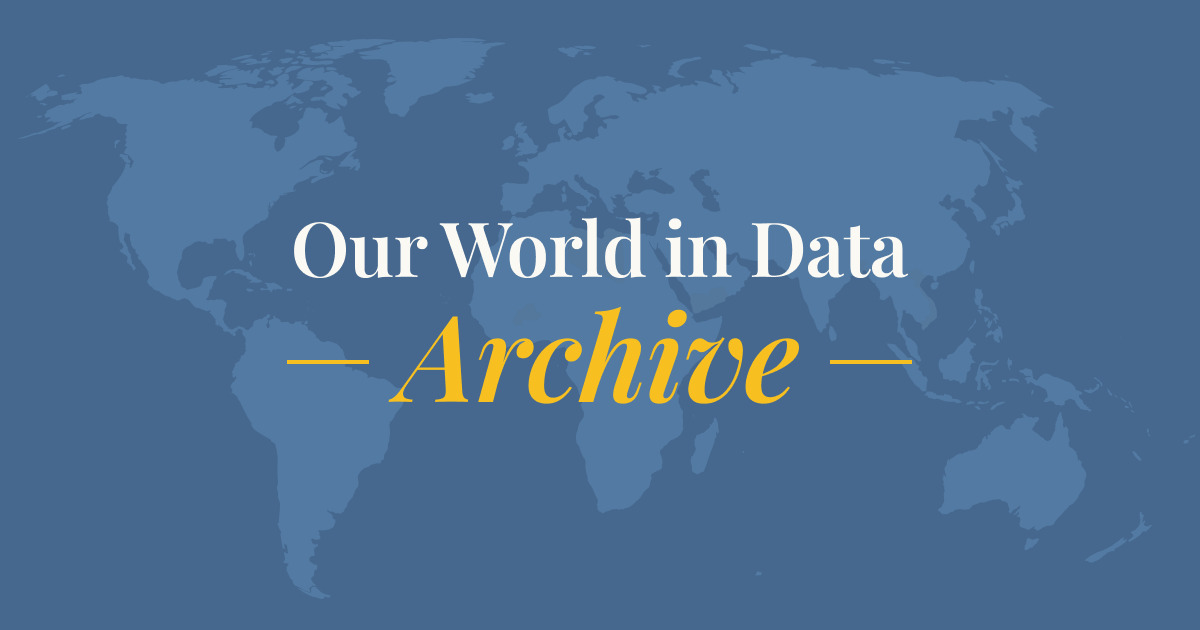Lucas is a Senior Data Scientist at Our World in Data, mostly working on the curation of various datasets and the data infrastructure.
He joined in 2021, after working as a Deep Learning Researcher at the National Institute of Informatics (Tokyo, Japan) and as a Data Scientist for the private sector. He studied an M.Sc. in Electrical Engineering at UPC (Barcelona, Spain) and KTH (Stockholm, Sweden).
Lucas is a Senior Data Scientist at Our World in Data, mostly working on the curation of various datasets and the data infrastructure.
He joined in 2021, after working as a Deep Learning Researcher at the National Institute of Informatics (Tokyo, Japan) and as a Data Scientist for the private sector. He studied an M.Sc. in Electrical Engineering at UPC (Barcelona, Spain) and KTH (Stockholm, Sweden).
July 11, 2023
Explore global and national data on population growth, demography, and how they are changing.
November 28, 2023
People are living longer across the world, but large differences remain. Explore global data on life expectancy and how it has changed over time.
March 07, 2020
The COVID-19 pandemic has had a profound impact on the world. Explore global data and research to understand its impact, spread, and global response.
March 20, 2024
How common are armed conflict and peace between and within countries? How is this changing over time? Explore research and data on war and peace.
June 20, 2023
Mental health has a significant impact on people’s lives and wellbeing. To support people with mental illnesses, we need better data to understand them.
March 15, 2013
How has democracy spread across countries? Are we moving towards a more democratic world? Explore global data and research on democracy.
April 02, 2023
Suicide rates can be reduced with greater understanding and support for people at risk.
April 05, 2023
Humans were emitting large amounts of gases that depleted the ozone layer. But in the 1980s the world came together to tackle the problem. Emissions have fallen by more than 99%.
December 07, 2023
The world can respond swiftly and effectively to pandemic risks with better understanding, resources, and effort.
December 16, 2020
Explore data on COVID-19 vaccinations across the world.
May 01, 2020
Explore data on COVID-19 deaths across the world.
May 02, 2020
Explore data on COVID-19 cases across the world.
May 22, 2020
Explore data on COVID-19 excess mortality across the world.
May 05, 2020
Explore data on the mortality risk of COVID-19 across the world.
November 27, 2023
Women tend to live longer than men in all countries — but the sex gap in life expectancy is not a constant.
November 01, 2020
Explore data on COVID-19 hospitalizations across the world.
July 11, 2024
Falling fertility rates, migration movements, and China’s population decline.
July 11, 2022
Explore the key highlights from the UN’s latest release of its world population estimates.

May 07, 2020
Explore data on COVID-19 testing across the world.
February 08, 2022
Our team builds and maintains a long-run dataset on population by country, region, and for the world, based on three key sources.
February 28, 2023
Johns Hopkins University will stop publishing data on confirmed COVID-19 cases and deaths. Our team will replace our entire time series with WHO's data on 8 March 2023.
December 13, 2023
Browse our two detailed data explorers on armed conflicts and war, with almost 300 interactive visualizations across six data sources.
May 01, 2024
Our peer-reviewed article outlines seven ways to publish data better.
May 31, 2022
As of 23 June 2022, we will no longer add new data points to our COVID-19 testing dataset. We will continue updates of all other metrics in our COVID-19 dataset.
November 15, 2024
We list our datasets on COVID-19 and the frequency with which we will update them going forward.
November 18, 2024
The pandemic has resulted in over twenty million deaths. In this article, we review the key insights from global data on COVID-19.
November 18, 2024
Our small team made COVID-19 data clear, reliable, and accessible to a global audience. This is how it happened.
Help us do this work by making a donation.